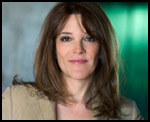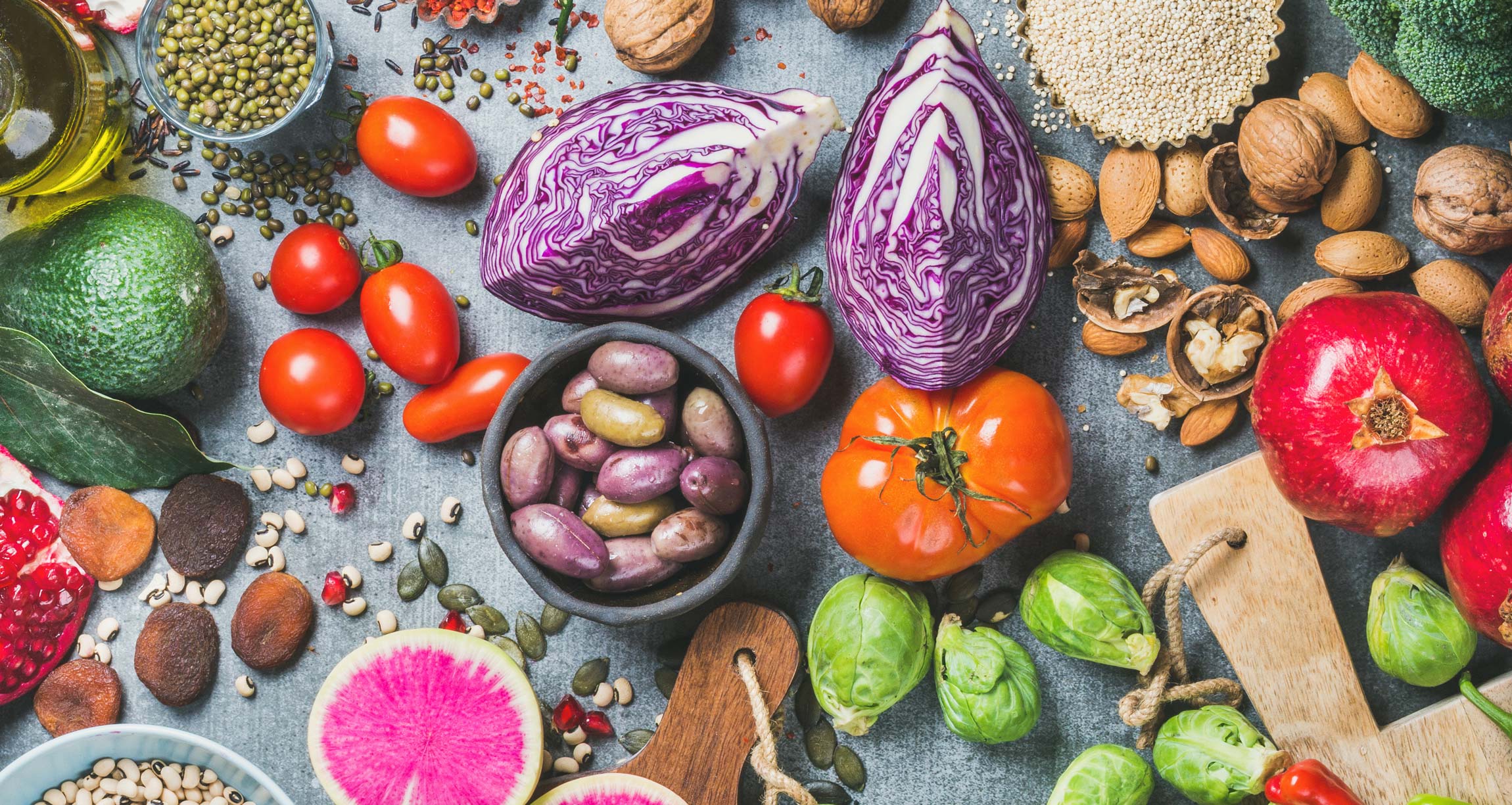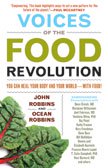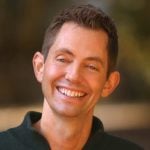 Food, Body, and Divine Perfection
Food, Body, and Divine Perfection
This interview was conducted for the 2012 Food Revolution Summit and was edited for inclusion in Voices of the Food Revolution: You Can Heal Your Body And Your World With Food!, by John and Ocean Robbins
Marianne Williamson is one of the world’s most beloved spiritual authors and lecturers, and the author of six New York Times bestsellers. She is founder of Project Angel Food, a meals-on-wheels program that every day serves more than 1,000 homebound people with AIDS. In her latest bestseller, A Course in Weight Loss: 21 Spiritual Lessons for Surrendering Your Weight Forever, Marianne brings to food and weight loss the same piercing insight and spiritual principles she brings to so many areas of our lives.
What are Marianne’s top insights to help you bring love and consciousness to your body, your relationship with food, and your own healing journey?
John Robbins: You are using principles that have been established and manifest strongly in recovery and twelve-step movements, and applying them to weight loss. How does that work?
Marianne Williamson: When you are dealing with a serious compulsion or addictive pattern, then by definition self-will, self-discipline, and any other machinations of the conscious mind are not enough by themselves to handle the problem. It is like a breaker switch in your brain is simply flipped. Anybody who has had this kind of a problem knows that it doesn’t matter how intelligent you are. Sigmund Freud said, “Intelligence will be used in the service of the neurosis.”
Often people will think, “I know enough not to do this stupid self-sabotaging thing, so why do I keep doing it?” When you look at obesity in the United States, clearly it is not a bunch of stupid people. It has nothing to do with intelligence. Sometimes people who are dealing with issues of obesity and compulsive eating know more than I will ever know about nutrition, metabolism, and exercise, because they have studied it. But clearly the real problem, and therefore the real solution, is on another level of consciousness, and that is where the spiritual work comes in.
John Robbins: In A Course in Weight Loss, you wrote that “This course is not about your relationship with food, it is about your relationship with love.”
Marianne Williamson: Your relationship with love is your relationship with the essence of who you are. It affects your relationship with your body, and your relationship with food. When you realize that you are a spirit and that this body is a temple, then you want to treat it well. Once you see that everything in life is a gift, you see that food is also a gift. If you are about to eat chemically processed, unhealthy food, you realize that to do so is, on a certain level, an act of violence against yourself.
John Robbins: Do you think that as people increase their sense of connection to their source, to their true nature, and to their body, that they will then develop a more healthy relationship with food?
Marianne Williamson: Oh, absolutely! People who are meditating every day and involved in a serious spiritual practice don’t usually wake up in the morning and want to rush out to eat a bunch of junk food.
John Robbins: I have seen in some spiritual circles, the idea that what you think determines pretty much everything, and so to concern yourself with things like nutrition and eating healthfully is to embody a lower level of consciousness.
Marianne Williamson: If I am eating something that is unhealthy for my body and irreverent towards life, that is a thought. And all thought creates form.
John Robbins: What do you see as the spiritual underpinnings of widespread hunger and malnutrition?
Marianne Williamson: Mahatma Gandhi said, “The problem of the world is that humanity is not in its right mind.” The cause of so much that we struggle with today stems from a fundamental separation from love. There are 17,000 children on this planet who starve to death every day. They are part of the hungry bottom billion on the planet, the people who live on $1.25 and less a day. Now the economist Jeffrey Sachs has statistically proven that for $100 billion, spent over a ten-year period of time, we could eradicate deep poverty from the planet. So here we have $700 billion a year that we spend on defense in the United States, and for one-seventh of that, spent over ten years, we could eradicate deep poverty.
It all goes back to a fundamental insanity and lack of love. We have so many people who are under nourished or malnourished or starving, and that fact is juxtaposed with the fact that at least as of now, we have enough food.
John Robbins: Scientists fear that global warming could create 150 million environmental refugees by 2050. And while, despite distribution problems, we do grow enough food to feed humanity now, climate disruptions and a rapidly growing human population may change that in the not-too-distant future. To look at our collective predicament through the lens of a twelve-step program, I sometimes think that the modern industrialized world is like an individual who is addicted or who is possessed by their alcoholism, and is very near hitting bottom. But we haven’t yet turned over our consciousness to what is greater and higher and truly possible—to the power of love. Following that metaphor, do you see that we are capable of collectively becoming sober?
Marianne Williamson: There is always a possibility, and I think that hope is a moral imperative. Do I see humanity bottoming out? Do I see humanity having a mass experience of all of us looking at each other and saying, “Wow, let’s do it another way now?” Absolutely—it’s inevitable that it will happen. The issue is how much human suffering will have to occur first. I mean if we start lobbing nuclear bombs, and eventually there are only fifty people left in the world, they will look at each other and choose to go on another way. How much human suffering has to occur first? I think that is up to us.
John Robbins: There are a couple of bumper stickers that I have seen. There is one, “If you aren’t outraged you aren’t paying attention.” And then there is another one, “If you aren’t in awe, you aren’t paying attention.” In some way, it seems that our hearts are being stretched to span the violence and the suffering in our lives and world, and at the same time we are also witness to so much magnificence and brilliance. We are a species that has produced nuclear weapons, and also one that has developed profound insight into the nature of life itself.
Marianne Williamson: I sometimes say that if you are not grieving, you are not conscious. But if you are not rejoicing in the possibilities of how this could all change, then you are not looking through the filter of the greatest spiritual perspicacity. Both grief and awe are realistic feelings about the state of the world today. The issue now is about what we are going to do. In every moment, we make a choice about which direction we are going to go. Once we realize that this is a self-correcting and self-organizing universe, then we don’t have to look any further than our own life circumstances, the relationships and situations that we are in, to begin the transformation.
John Robbins: There is a belief behind our disrespect for the earth, for our feelings, and for ourselves as members of the earth community. It is a belief that we are here to dominate, we are here to control, and that the earth and the living web of life is subservient to us.
Marianne Williamson: The beginning of the environmental crisis in Western civilization really began with the early church’s systematic destruction of pagan culture. Because in pagan culture, part of the role of women as the High Priestesses (or witches, as they were sometimes called at the time) was to hold a sense of divine and sacred partnership with the earth. One of the reasons the effort was made to systematically destroy that culture, was because the early church was seeking to introduce the dispensation that we were in fact not in divine partnership with nature, but rather that God had given it to man to dominate nature.
That is when a very insidious and poisonous thought form took such strong hold in Western consciousness. Yet today even ardent adherents to the dominator thought will often agree that we need to be good stewards, and I think that that is really where the conversation needs to begin. Some of us believe humanity should be in divine partnership with nature, some people believe that man has been given by God the right to have dominion over nature. But since even they say that we should be good stewards, that right there should be the common ground.
Recently I was at a conference sponsored by The Humane Society. It was about abuses to animals and laws that need to be changed. It was a rather small group, and it included a very high-level group of people who were like the head of the Southern Baptist Convention and other serious players in conservative Christianity. What I noticed there, and it was absolutely fascinating to me, was that if you say to those people that the same spirit of God is in an animal that is in you and me, they bristle and shut down. However they do believe that God has instructed us to be merciful, kind, and tender towards the animals. Within that context, I was amazed and deeply respectful by how politically organized and active they are regarding laws that will regulate the treatment of animals.
We were watching these videos of horrible animal abuses. I saw a woman who heads the Moral Majority or some similar organization, sitting there with tears streaming down her cheeks.
John Robbins: I often think about the biblical injunction that we are given dominion over the animals. What does that mean? If I have two sons and I go out for the evening and I say to the older one, “You are in charge while I am gone,” and I say to the younger one, “Will you please do what your older brother says until I get back?”, I am in effect giving the older boy dominion over the younger one for the time being. But I wouldn’t be happy if when I returned home I found that the older son had tortured, cooked, and eaten the younger one; or performed some macabre medical experiment on him; or had been otherwise less than merciful, kind, and tender towards him. Even if we accept dominion, what does it mean to be reverent and compassionate?
Marianne Williamson: There is a responsibility that comes with dominion. If we are supposed to be good stewards of the earth, then we should ask: How is it good stewardship to destroy the Amazon? How are factory farms good stewardship?
John Robbins: And how are we being good stewards of our bodies when we eat poorly and abuse them? Yet, many of us carry compulsions that arise from levels of the psyche and from our relationship to life that are beyond self-will. Some of these compulsions stem from childhood. How can we help our children grow up with good food habits, confidence in themselves, and a positive body image?
Marianne Williamson: All of us as parents see on a daily basis the way that our own choices affect our children. My daughter is 21 and at about age 20 the jury comes in. At that point, I felt like I could see where I got it wrong and where I got it right. I look back now and think that in parenting, you have to know when to hold and when to fold. One of the places where I folded and wish I hadn’t was with food. I remember that when my daughter was an adolescent, she used to bring all these chips and empty carbs into the house. I would say: “We don’t have things like that here. We have fruits and nuts and vegetables.” She would reply: “But all the other kids do and I have to have them when my friends come after school or I’ll be a total dork.” That is a place where I folded and I wished I hadn’t.
We are responsible for what we have in our homes, and what we serve our children. But I do work with a lot of women who say: “I want to have healthy food in the house, and I want to feed my children healthy food. But my husband insists on junk.” It can be hard for a lot of people, even when they have the best of intentions, to fill their homes with healthy food.
John Robbins: There is an intricate dance between will and surrender—between determination and unconditional love. This shows up in families, and also in relation to our own bodies.
The fat acceptance movement holds that people are unfairly discriminated against because of their size and appearance, and that this discrimination is a form of violence. It seeks to change discrimination in employment and cultural stereotypes, and also to help fat people come to greater levels of self-acceptance.
I want people to feel good about themselves. There is beauty in everyone, of every size and shape. There is beauty in people at every level of health and illness. At the same time, I want people to be healthy. I know that weight is not just a question of vanity or cultural conditioning. There is a tension that I think many people feel between self-acceptance and unconditional love on the one hand, and the courage to change what we can on the other hand.
Marianne Williamson: It is a basic truth that a situation has to be accepted fully before you can have the power to change it, so accepting yourself where you are is important. However, there are real health implications to obesity. I often tell people: “You can hear it from me now, or you can hear it from your doctor later.” There is no way that carrying fifty or sixty extra pounds is easy on your heart, your lungs, or your liver. That’s a fact. Every person in the world, no matter what size, shape, or form they are, deserves respect and love. But that doesn’t mean we are supposed to pretend that something is healthy when in fact it is not.
John Robbins: What do you see as the relationship between the body and the spirit?
Marianne Williamson: How we sit within the body is an extremely important part of the spiritual journey. The body itself is used either by the spirit within us, or by the fear-based mind. When it is used by the spirit, then it is a thing of holiness. How we dwell within it, how we treat it, and how we use it in relationship to other aspects of the planet is extremely important. When we use the body without reverence, we are destructive elements on the planet. We become destructive to ourselves, to other life forms, and to the earth.
So the issue of whether we see the body as a temple of God or as something we hold with disrespect is an extremely important spiritual issue. Both the Christian cross and the Jewish Star of David are visual symbols of the intersection of the mortal and the divine. In A Course in Miracles, in talking about Jesus, it says: “He lived on the earth yet thought the thoughts of Heaven.” That is really what we are after from a spiritual perspective. To be very grounded, to live in our bodies in very healthy, vital ways. And to spiritualize the body as well as grounding the spirit.
John Robbins: Would you like to close with a prayer?
Marianne Williamson: Oh Spirit, Divine Creator, we pray. We place in your hands our precious earth. We place in your hands all living things. We place in your hands our bodies. We place in your hands our relationship to food. We place in your hands our relationship to animals. We place in your hands our relationship to the earth, and we ask that a great wave of blessing come upon us. May our minds be healed of all illusion and falsehood. May we be lifted in thought and in action. Please purify our thoughts that all behavioral patterns might be lifted to Divine right order, that there is only reverence and love between us and all life. And so it is. Thank you, God. Amen.
John Robbins: Amen.
To own this and 20 more gamechanging interviews, check out Voices of the Food Revolution: You Can Heal Your Body And Your World With Food!, by John and Ocean Robbins.





